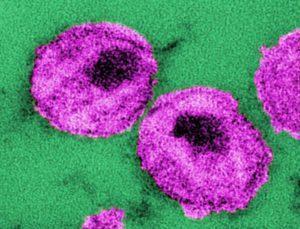Since the discovery of HIV in the 1980s, the virus has spread worldwide, causing the AIDS pandemic. Neutralising antibodies can bind to the virus and prevent it from entering into cells, however, there has been debate about whether HIV strains are becoming more resistant to antibody responses over time. Researchers analysed over 34 000 HIV isolates collected throughout the span of the pandemic and have found that the virus is in fact becoming more and more resistant to neutralisation over time.
Neutralising antibodies provide a high magnitude of selective pressure towards the virus. Therapy with neutralising antibodies may be advantageous to individuals with resistance to current drug regiments. Proof of principle studies in humanized mice, primates and even humans have shown that antibodies are effective in controlling viremia. However, the pressure exerted by these antibodies leads the virus to “escape” neutralisation by gaining certain mutations. Currently, testing for such mutations against antibody responses in not only expensive but takes a long time.
This led researchers, Anna Hake and Nico Pfeifer, to design a computational model to predict the response of HIV to antibody neutralisation. They developed a model which does this by only analysing the HIV Envelope (Env). Env is the sole target of neutralising antibodies and analysing just this subunit may decrease the time for analysis and increase simplicity.
The computational biologists designed regression models using support vector regression and these were able to predict the sensitivity of viruses to 11 neutralising antibodies that they chose. Upon analysis of over 34 000 sequences from different HIV subtypes collected over 30 years, the researchers found that there was a trend towards HIV isolates become more resistant to neutralising antibody responses over time irrespective of subtype.
This study has implications in vaccine design as an immunogen may need to elicit the most broad and potent responses to neutralise all or most of the HIV strains in circulation. In terms of therapy, resistance to neutralising antibodies may likely prevent successful control and treatment of HIV by passively-transferred neutralising antibodies.
Article by Thandeka Moyo












